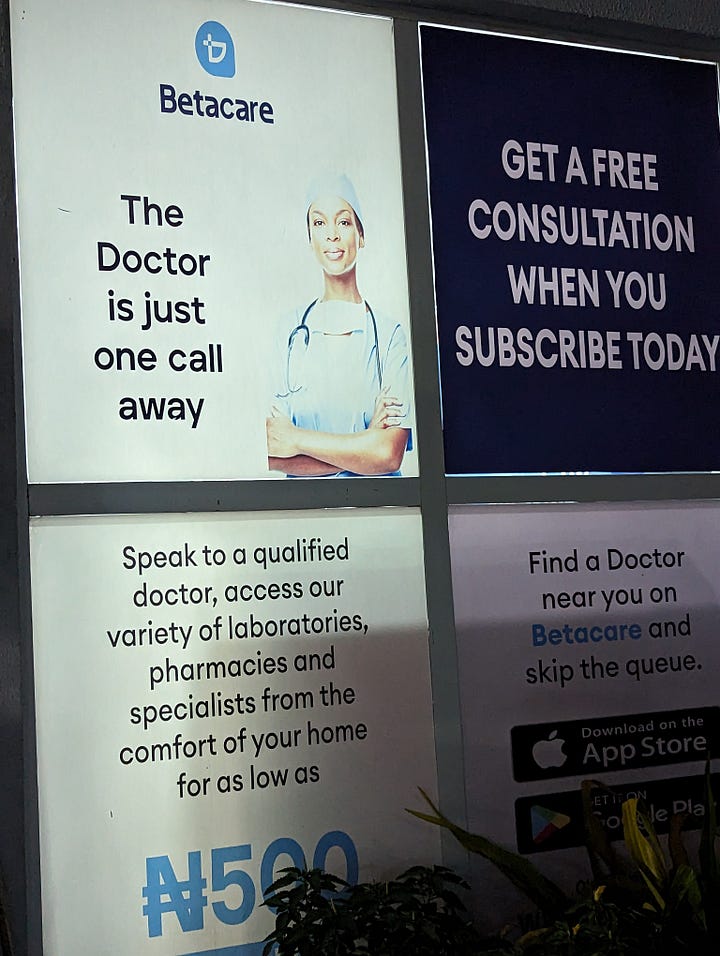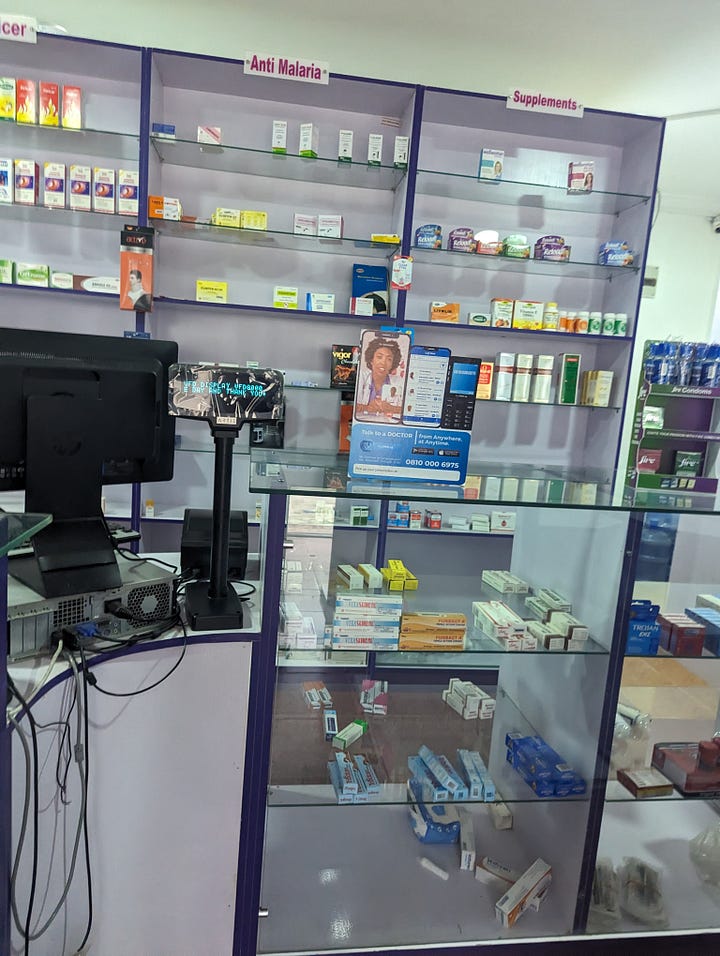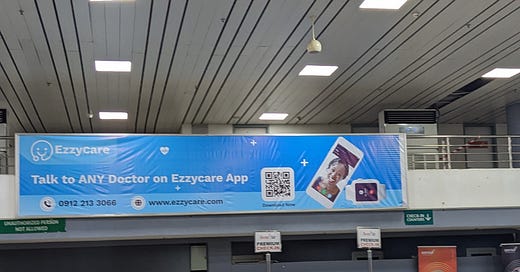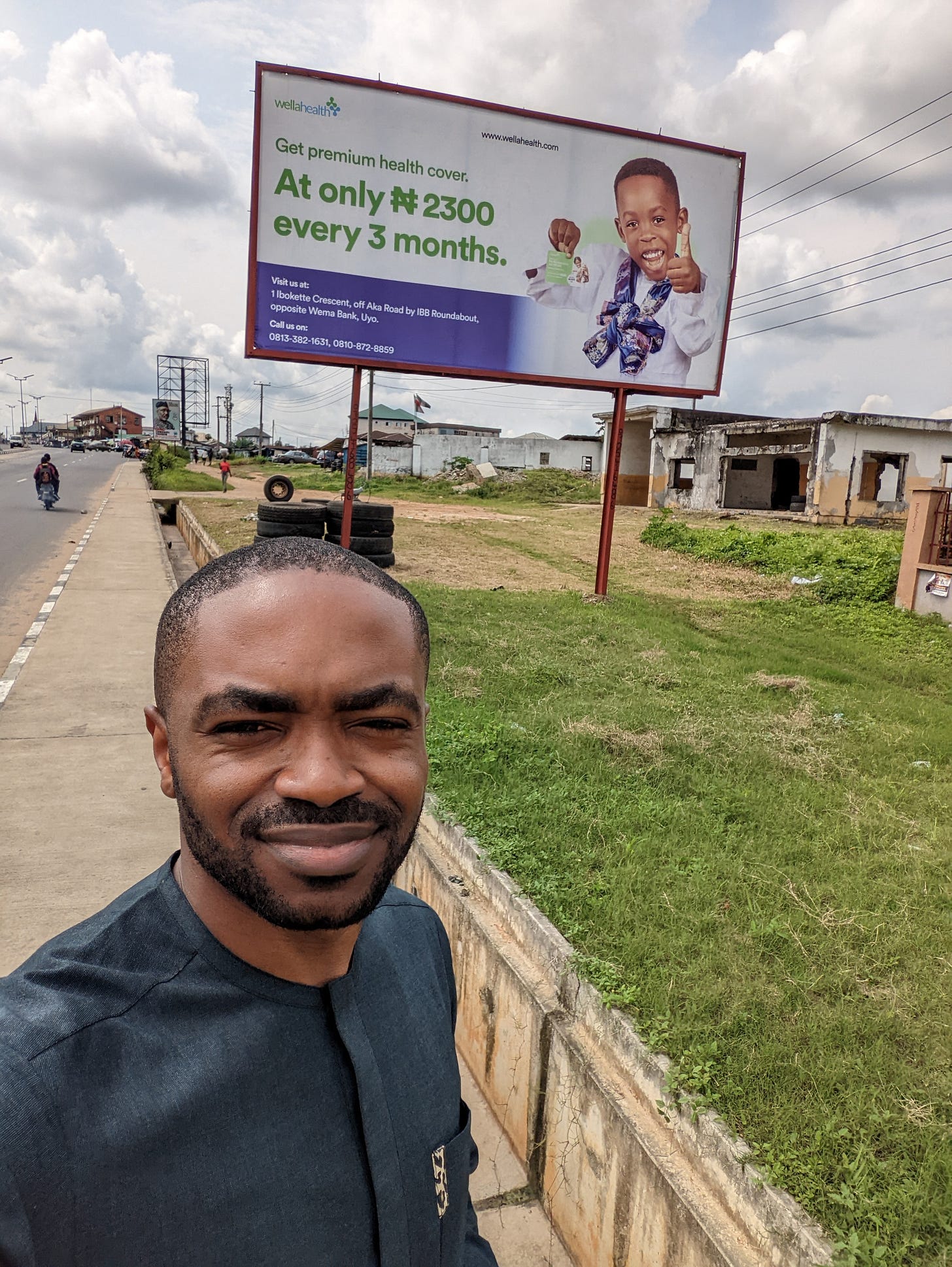The Marketing Line in Digital Health
Health tech startups are increasingly spending on expensive untargeted advertising when they may be better served by using methods that directly target their ideal customers.
Editor’s note - I’m back from my writing hiatus with a short piece on my recent observations around marketing approaches in digital health. To keep this substack going regularly I’m now accepting guest posts to fill in whenever I’m on a hiatus so please reach out if you have a unique perspective or observation on digital health in Nigeria and Africa you’d like to share.
I recently flew to Lagos from Abuja to attend to a number of engagements and teach a health startup masterclass that I’m hosting Thursday the 24th of August in Ikoyi, Lagos. While at the Abuja airport I was intrigued by a big banner I came across that was advertising a telemedicine service. It was a big blue sign that invited people to try out the company’s telemedicine service with the copy, ‘talk to any doctor on the ezzycare app’. Underneath this copy was a phone number, a web address and a QR code. This billboard was strategically placed above the check-in counters in the departure hall.
This out-of-home (OOH) advertising presence for health tech solutions seems to be becoming more prevalent. Perhaps it’s explained by the Baader–Meinhof phenomenon but the day before I saw this banner at the airport, I’d gone to an Abuja pharmacy to buy some analgesia and saw a tabletop advertising display encouraging customers to call a phone number to speak to a doctor. The very next day while in Lagos I saw another telemedicine service advertising its services on the side panel of a pharmacy. The ad invited the reader to ‘skip the queue’ and download their app to ‘find a doctor near you’.


All these OOH ads I came across were done by 3 different telemedicine companies that all essentially offer the same service. As part of their service, access via a smartphone app was an option they also all highlighted. This app option is primarily a digital service and thus begs the question of how digital ads and other forms of marketing would compare to these OOH methods. The former, digital ads, is often preferred by tech companies due to its ease of tracking and conversion attribution. OOH ads on the other hand are a shot in the dark and impossible to track. In the famous words of 19th-century retailer John Wanamaker:
Half the money I spend on advertising is wasted; the trouble is I don't know which half.
OOH advertising and similar above-the-line (ATL) tactics are much loved by incumbent companies selling traditional products. A bank selling its financial services or a construction company selling homes invests significantly in these OOH channels. They use it to build brand awareness, increase reach and stay top of mind when people want to buy a product they already know they need, like a loan or a house. Startups on the other hand are traditionally scrappy without budgets to fund massive ad campaigns. More importantly, they’re often still in search of the right business model. As a result, below-the-line tactics such as guerilla marketing, direct sales and email marketing are much beloved by startups. These are trackable and allow for direct feedback that can aid in improving the business model.
With startups becoming better funded, they now have marketing budgets that increasingly rival traditional companies. Seeing the results that incumbents get from ATL tactics, startups are beginning to copy the incumbents by stepping into these traditional channels. Without product market fit this can be a costly endeavour that yields poor results. A cautionary tale is perhaps the journey of 7 river labs, a lab offering by 54gene that was shuttered despite significant spending on OOH advertising.
In contrast, beacon diagnostics, a diagnostic startup that employs more BTL tactics has gone from strength to strength growing to over 15 locations across Nigeria within a few short years.
Billboards and other ATL tactics can feel good, give you an ego boost and offer the impression that you’ve arrived but it’s not clear that they provide the best return. BTL tactics that enable you to track spending and attribute conversions are a much better fit for startups. I would know.
Sign up for my health startup masterclass on Thursday 24th of August in Ikoyi, Lagos so you can learn from my many ego driven errors and accelerate your success.






